Côte d'Ivoire (Ivory Coast)Map
November Côte d’Ivoire is a fairly developed country in West Africa. Even as recently as the 1960s, all the government posts were occupied by white Frenchmen. The roads are normal here, the buildings are normal, and the population has a European bearing. 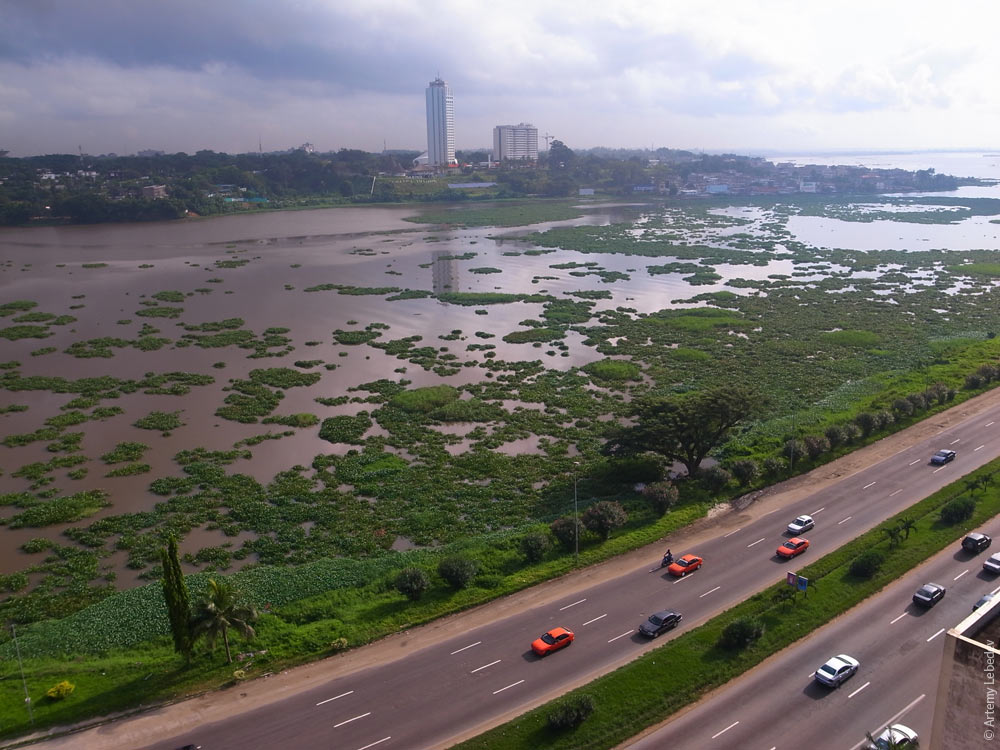 Like Guinea, Côte d’Ivoire is a French-speaking country. Therefore, baguettes are consumed here. 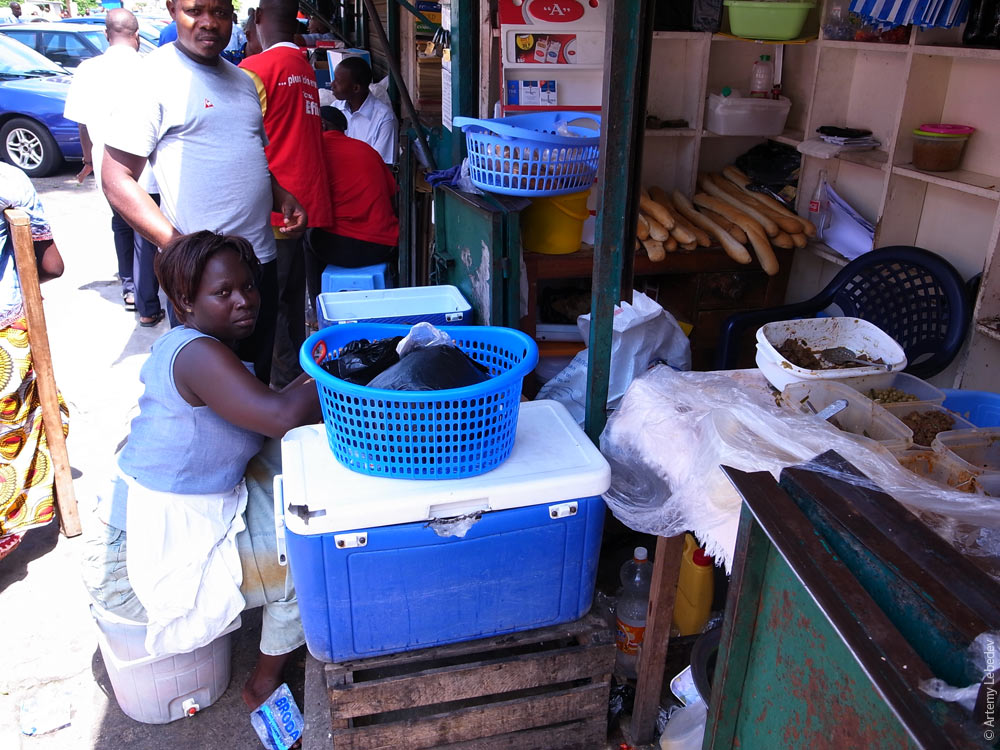 Like in Guinea, white people are neither liked nor respected here. Like in Guinea, an election was recently held here. 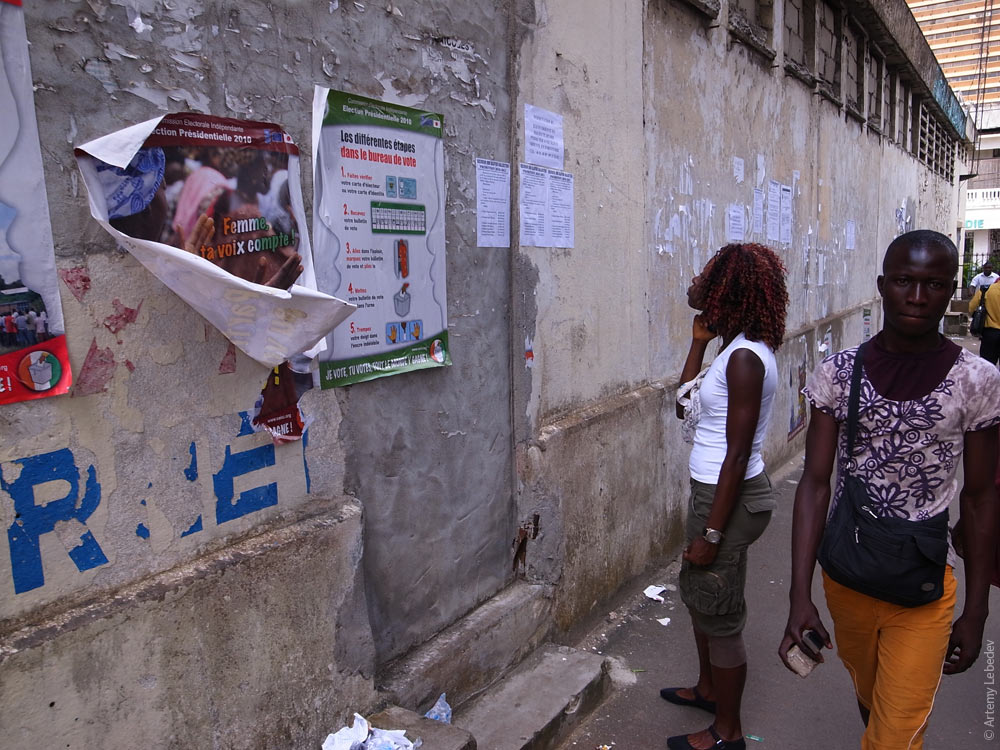 Like in Guinea, neither side intends to accept the results of the election as final. 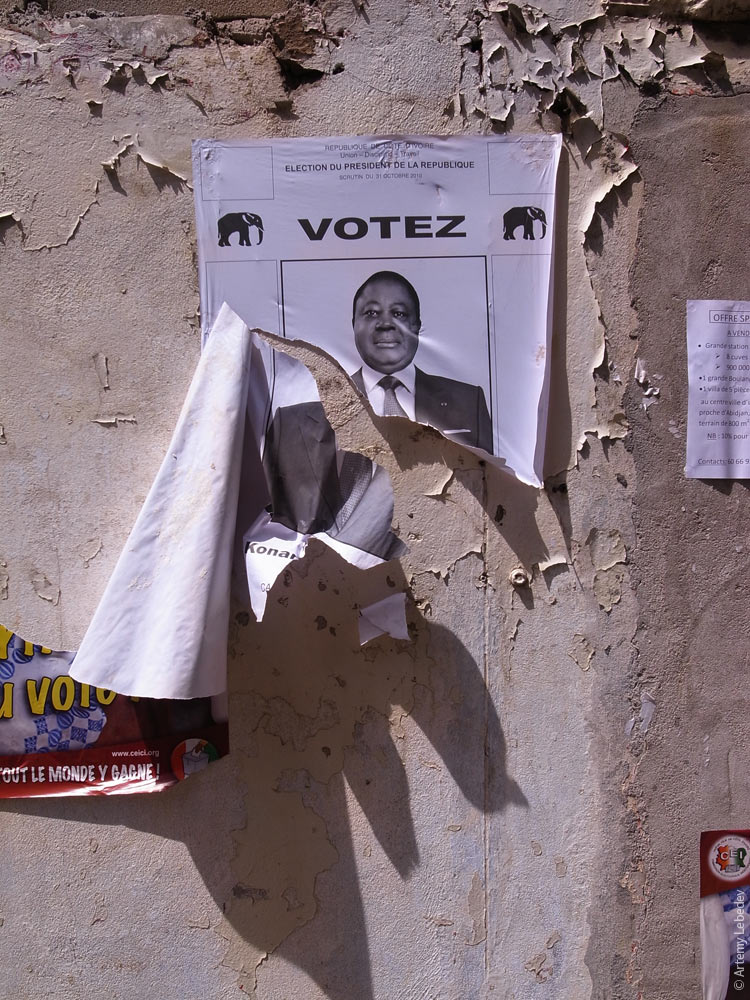 The one difference from Guinea is that the election results are to be announced a couple of weeks after I leave this hospitable place with bats on the trees (the black clumps on the branches). 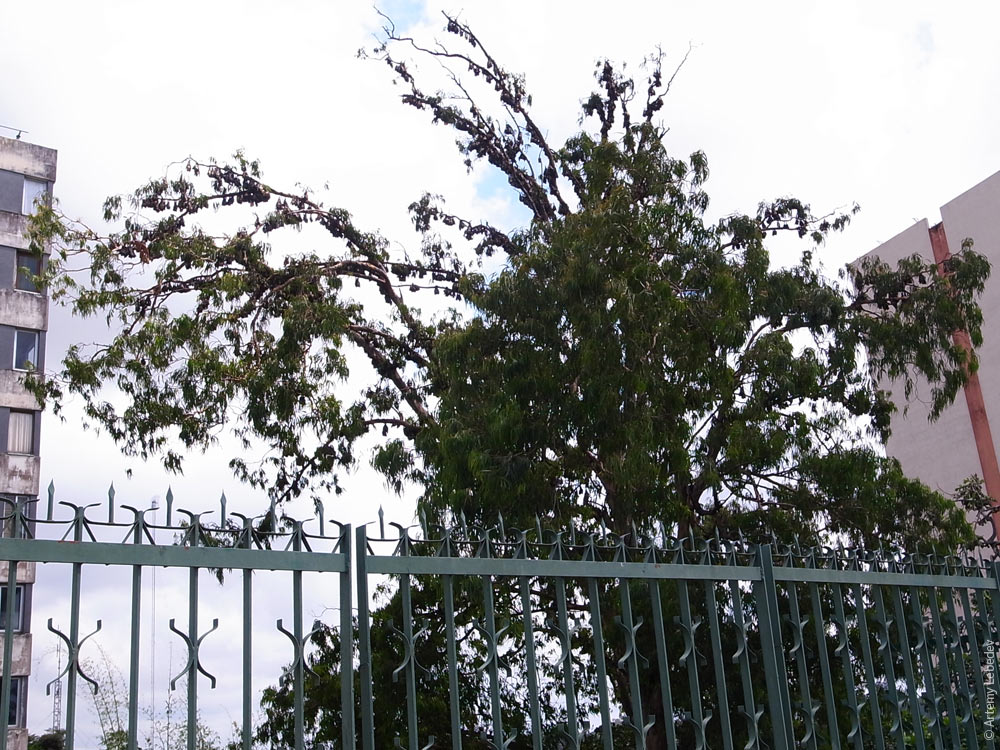 Like in neighboring countries, people transport carry-on bags and medium-sized luggage on top of their heads. 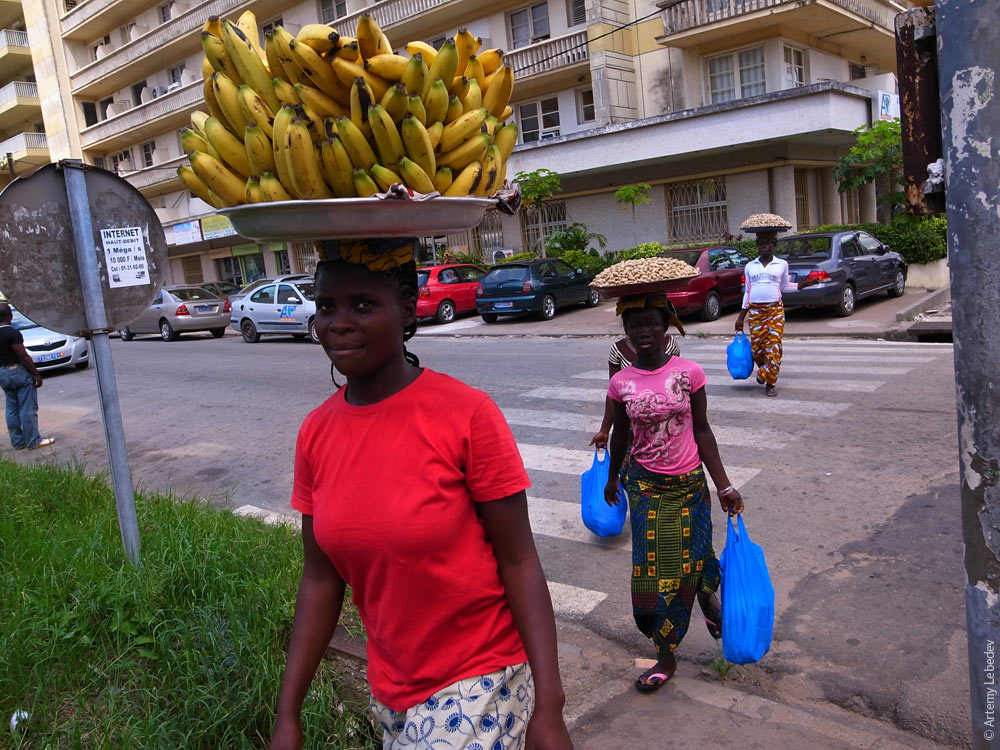 But at the same time, there are Internet access ports in the sidewalks. 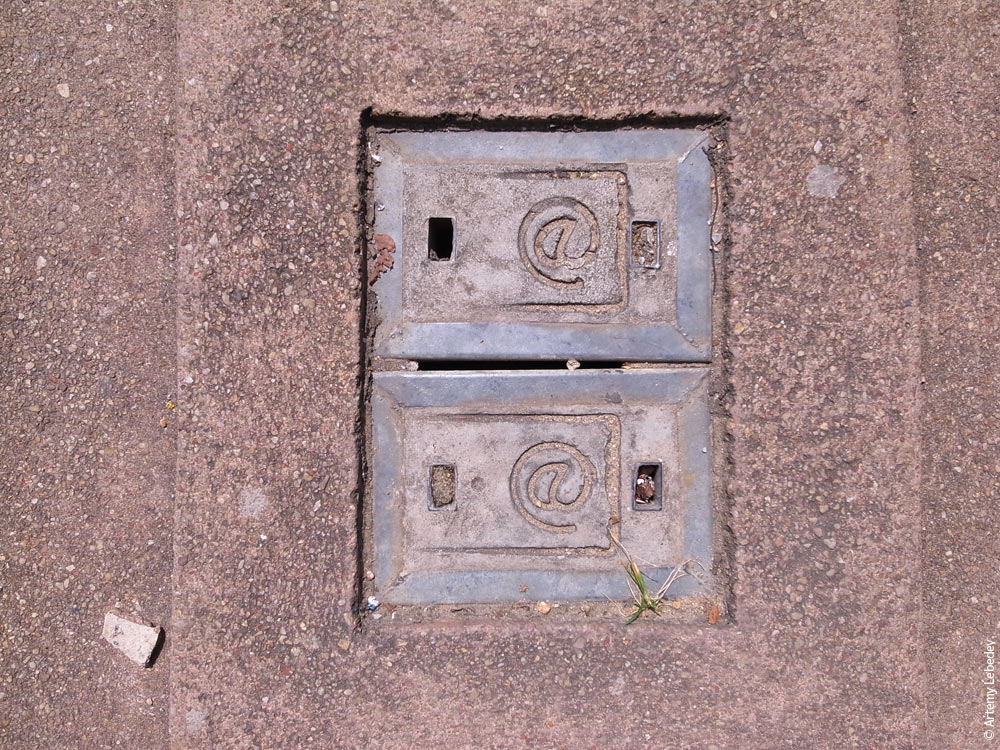 All the fences are decorated with spikes and barbs for added security. 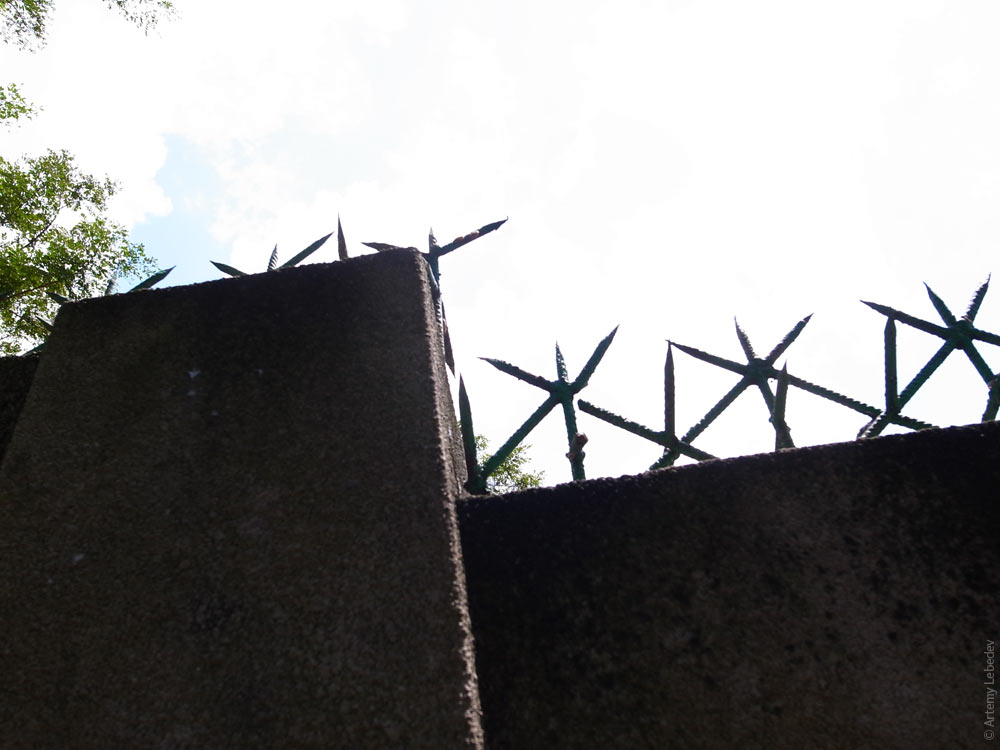 Parking is prohibited in front of many of them, too. 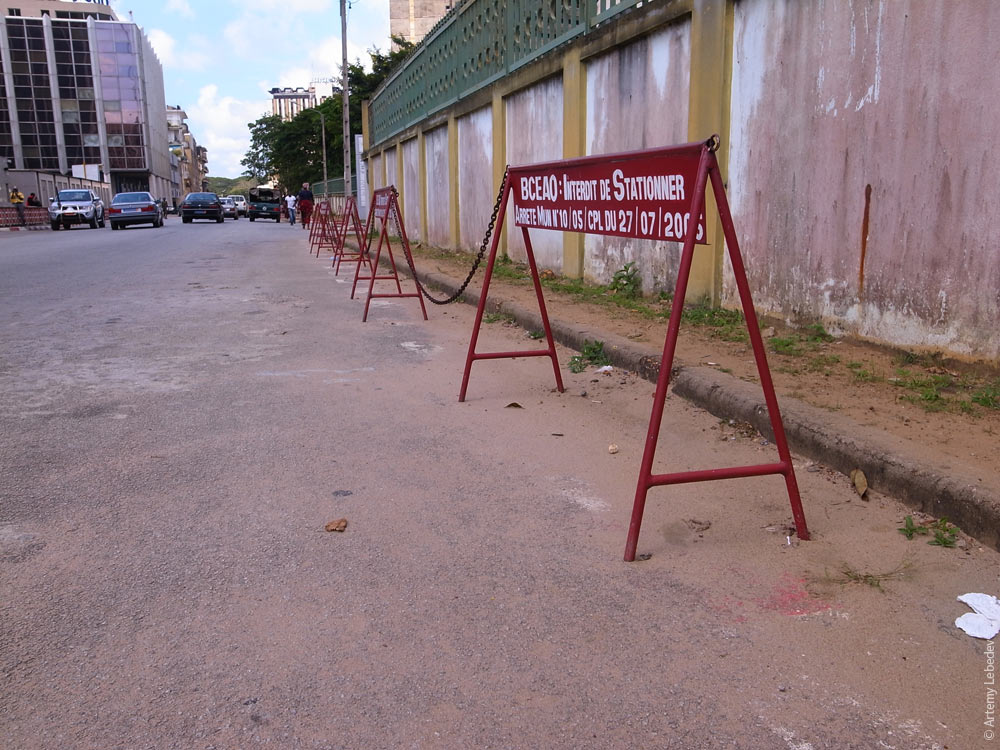 The biggest city in Côte d’Ivoire is Abidjan (I never would have thought that such a Central Asian-sounding name could exist in Africa, but in this case the word came from local tribes). The city still has French street signs from the late 1970s. 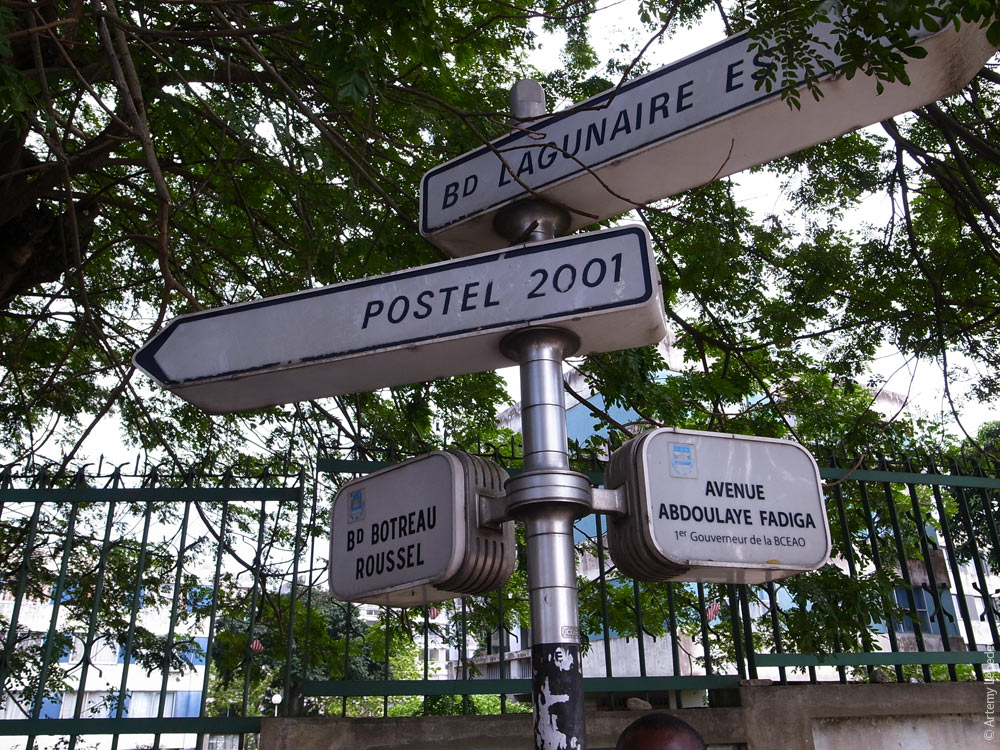 An Abidjan traffic light. 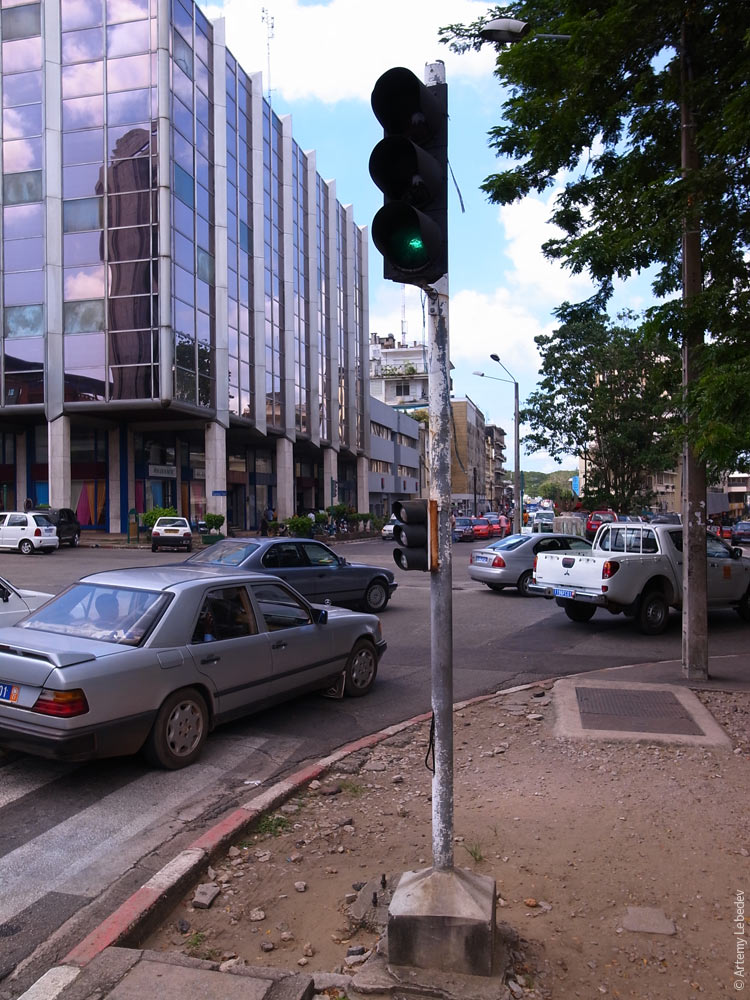 Another one. 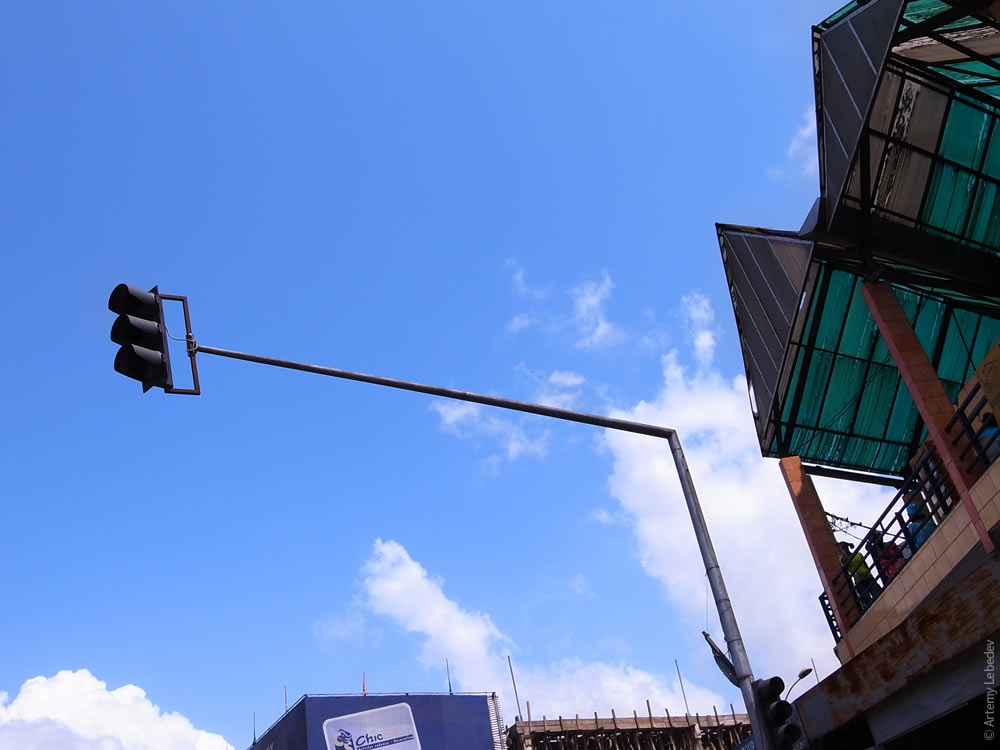 Taxis are a reddish-orange color. 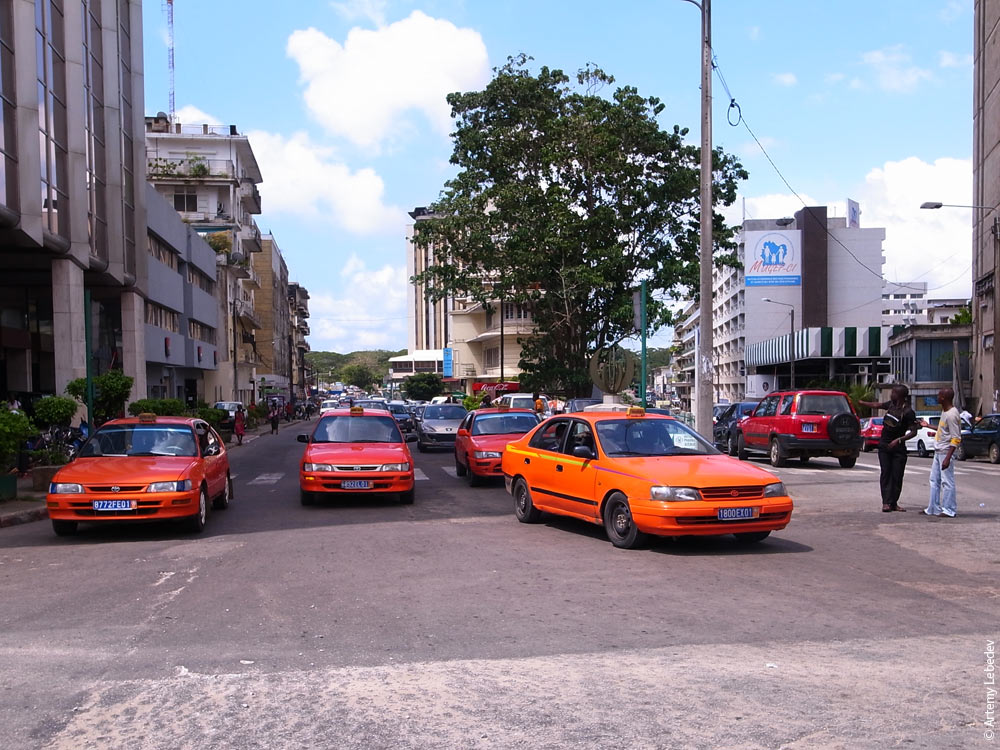 A custom top light on the taxi roof. 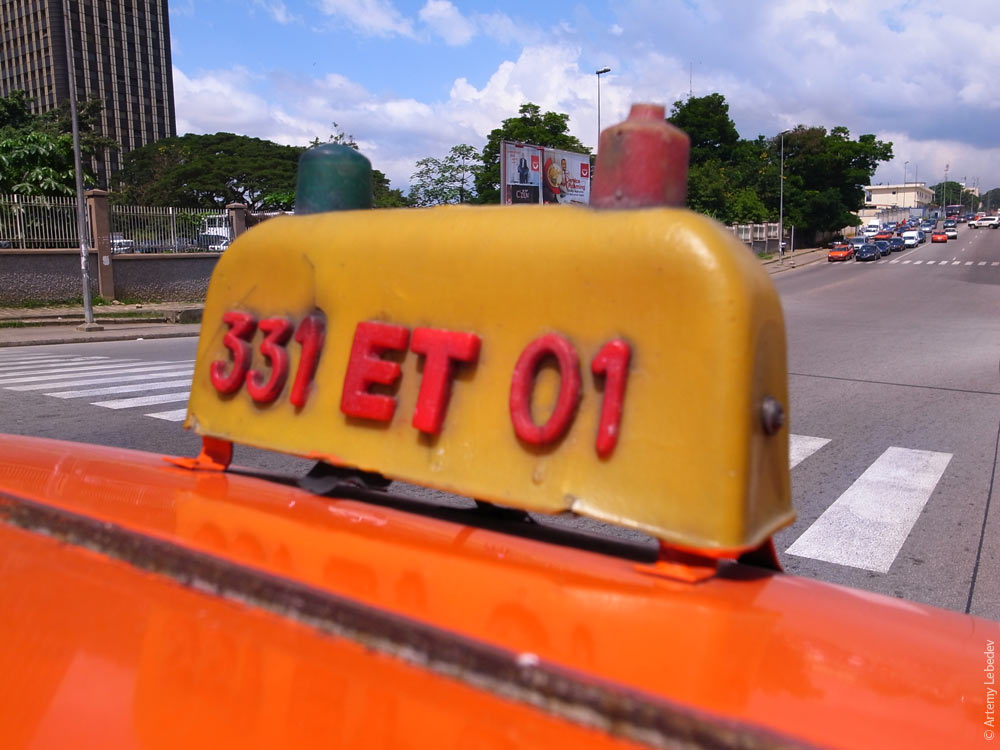 A license plate. 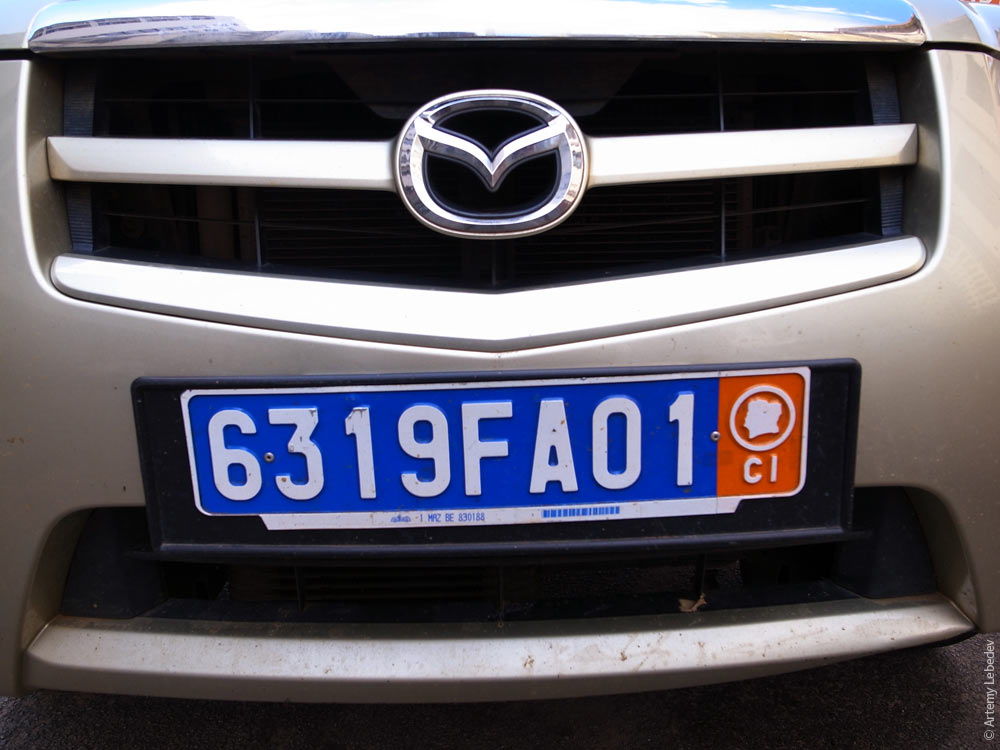 Every car has a box of tissues under the windshield (in Egypt, for example, there’s also a tissue box in every car, but there it’s usually attached to the roof with elastic bands). 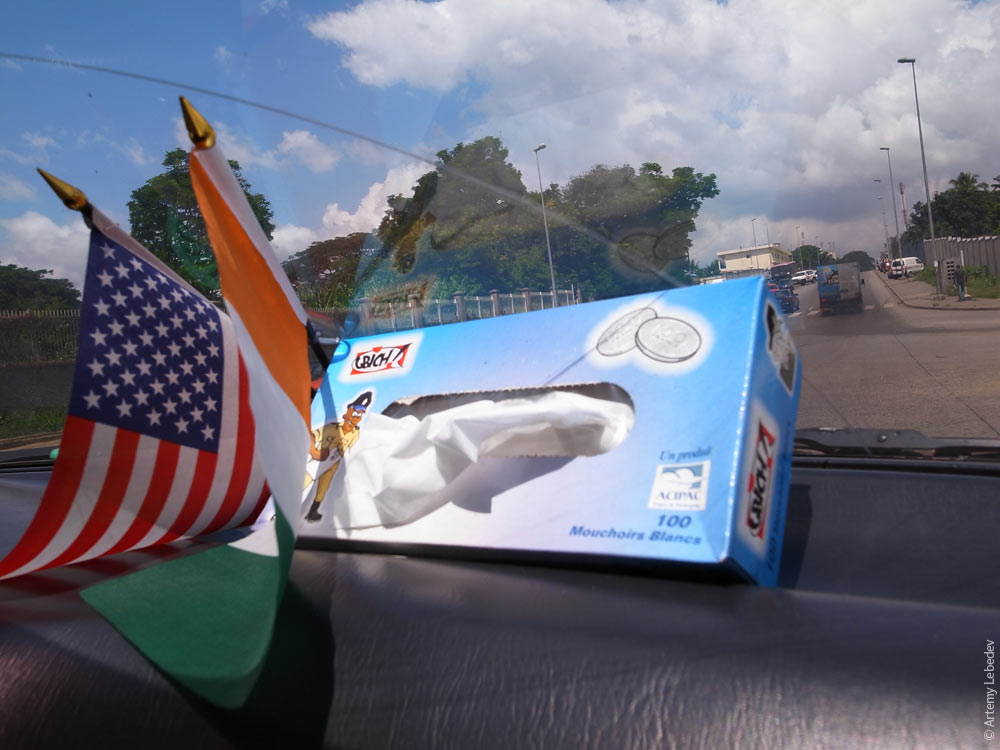 What do Abidjan and Donetsk have in common? Kiosks for recharging your cell phone balance in the shape of a cell phone. 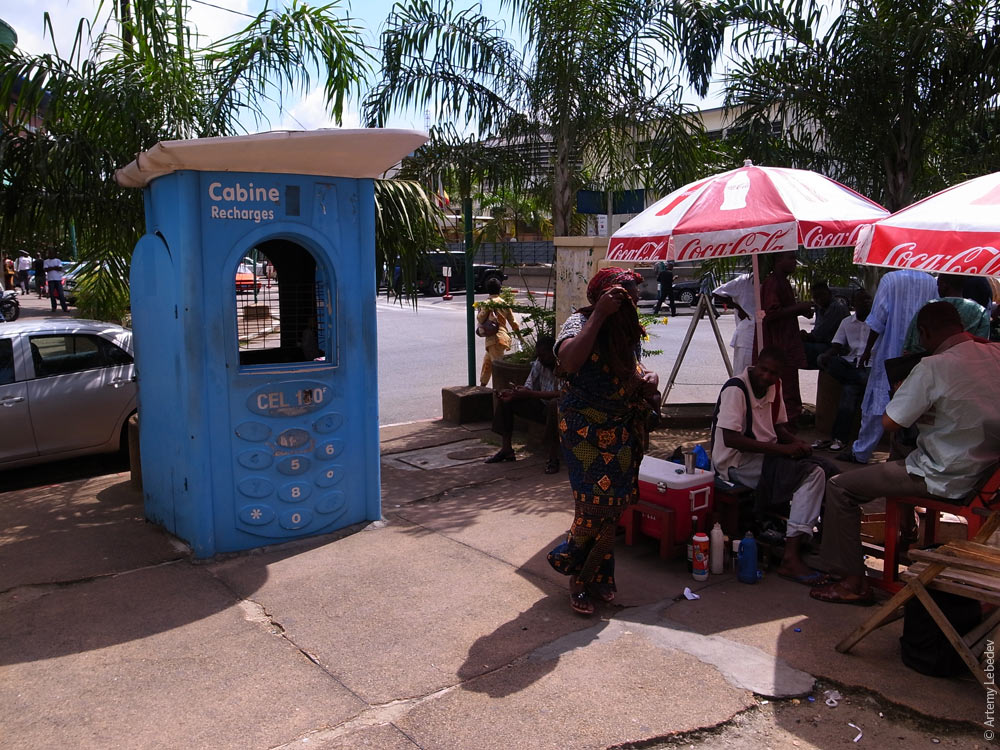 A payphone booth. 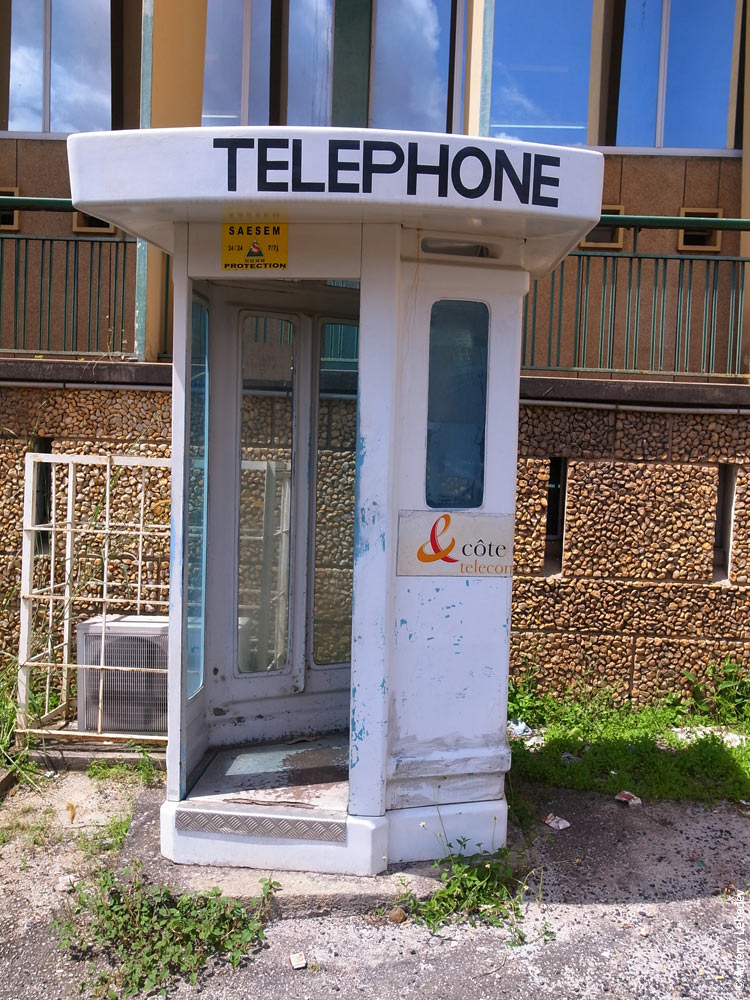 A less modern payphone booth. 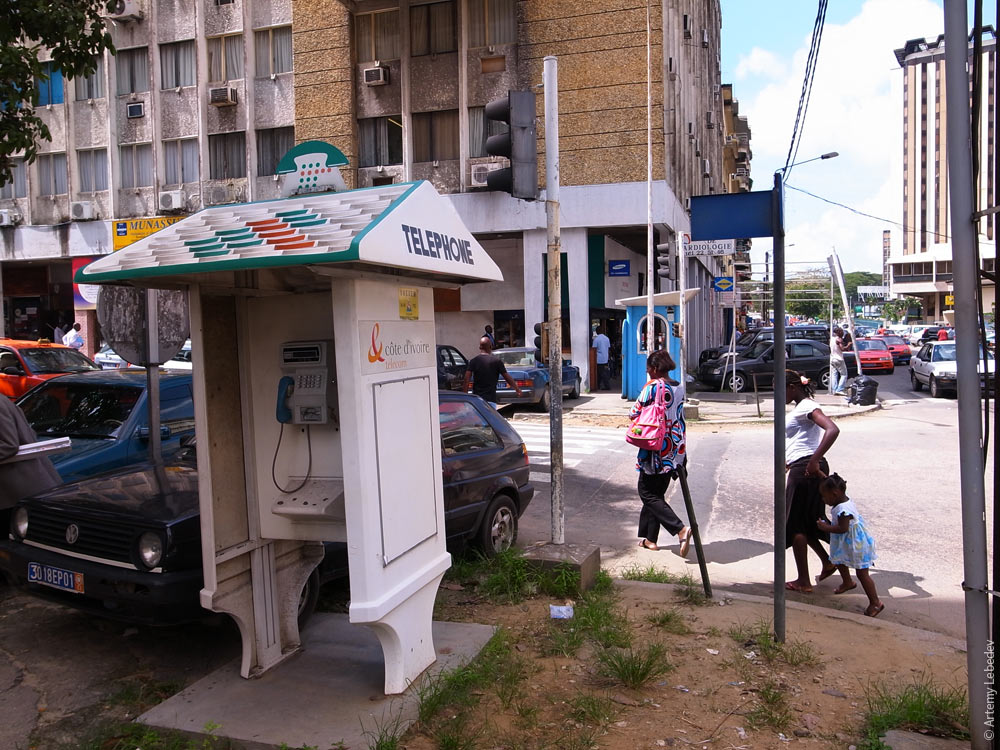 A more modern payphone booth. 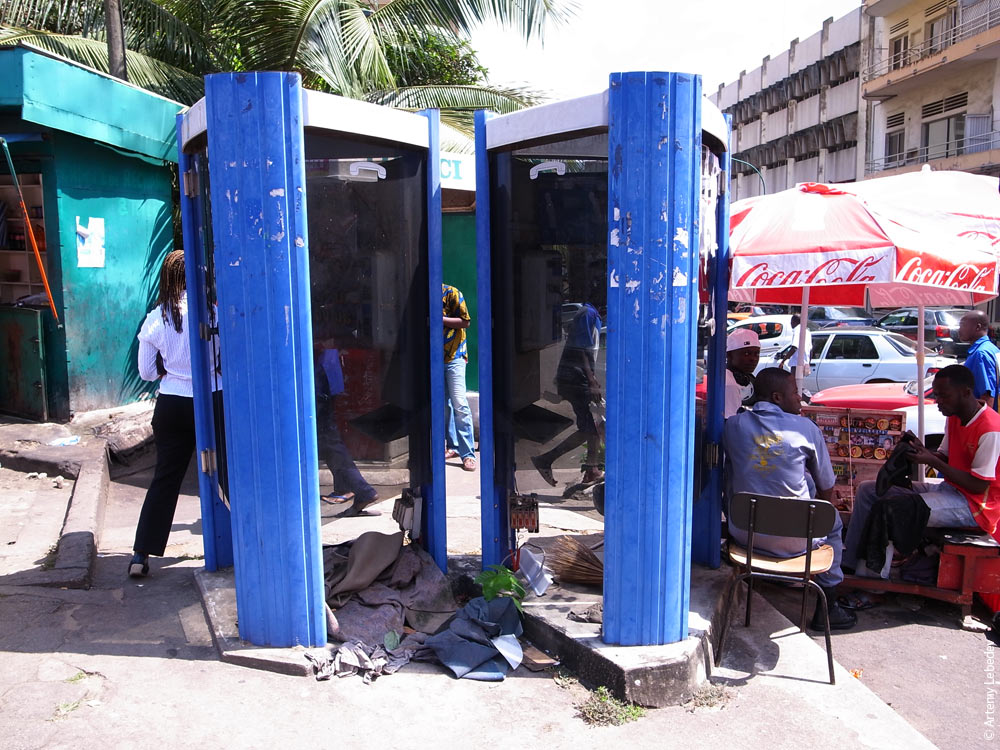 All the bus stops have roofs with a perky slant. 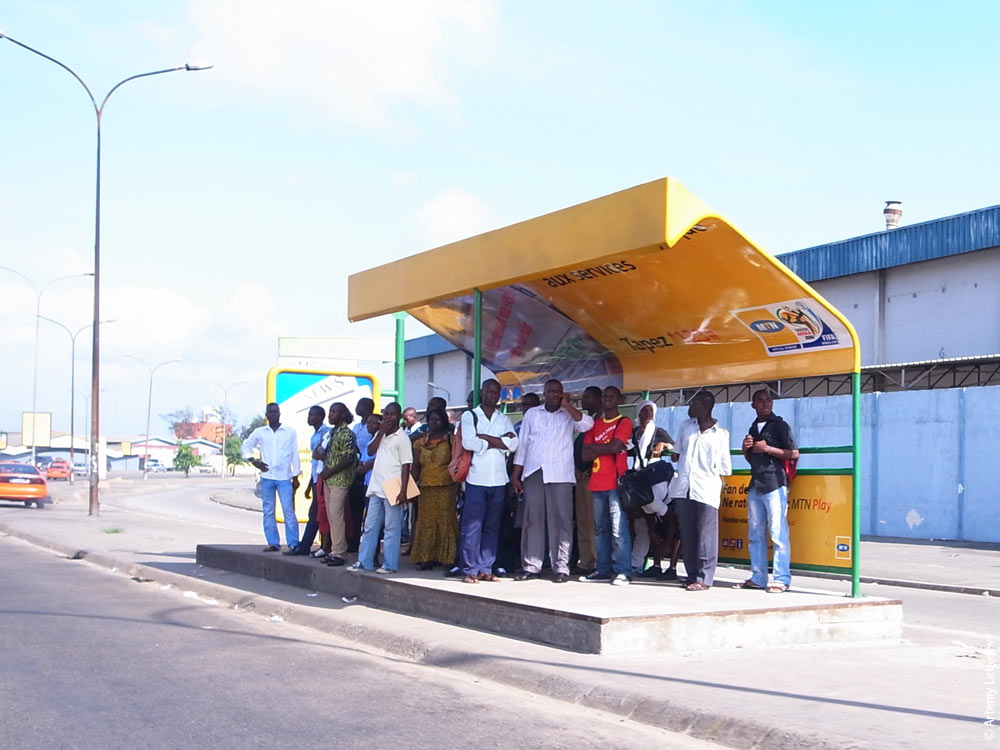 A post office. Postcards are mailed from here, there aren’t any street post boxes. 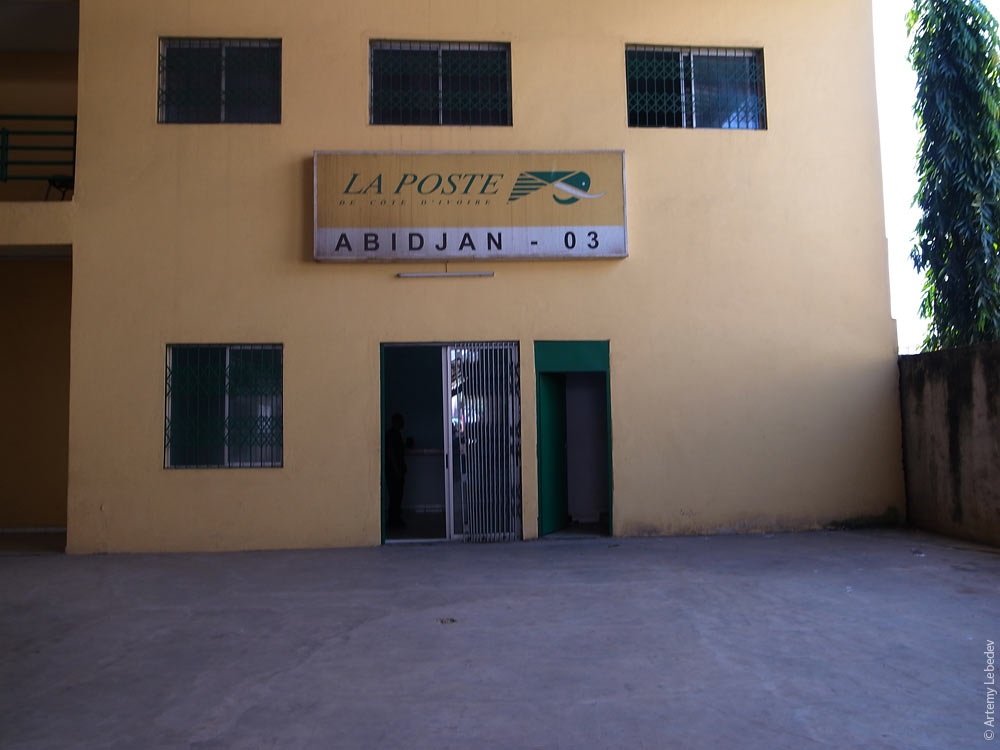 Couches being sold on the street. 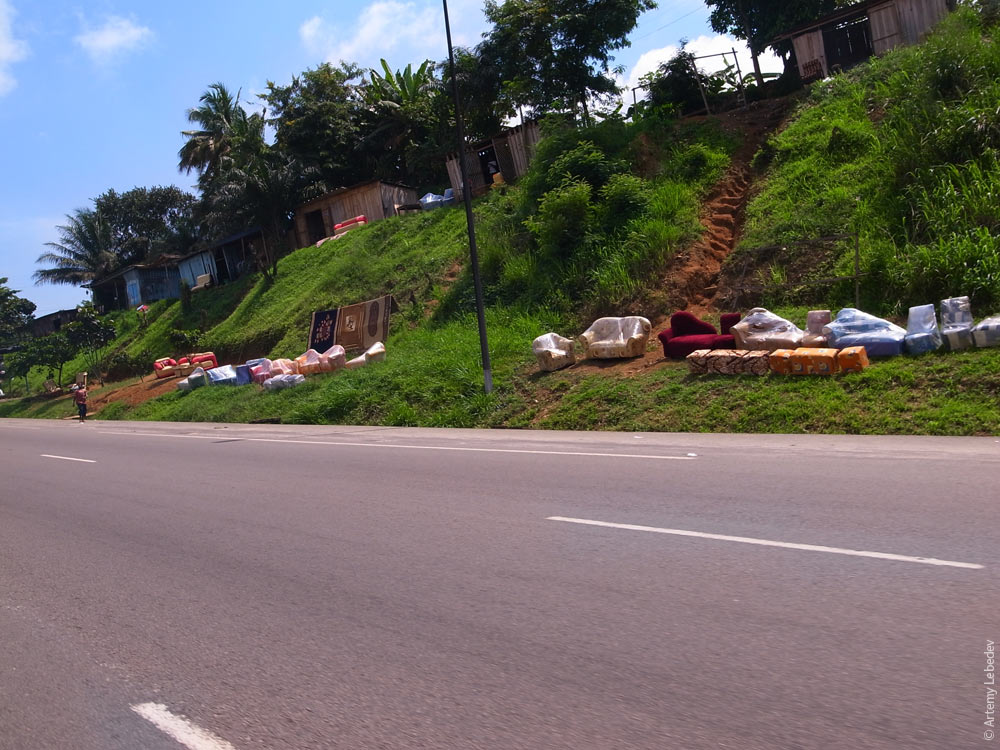 An animal-drawn vehicle. 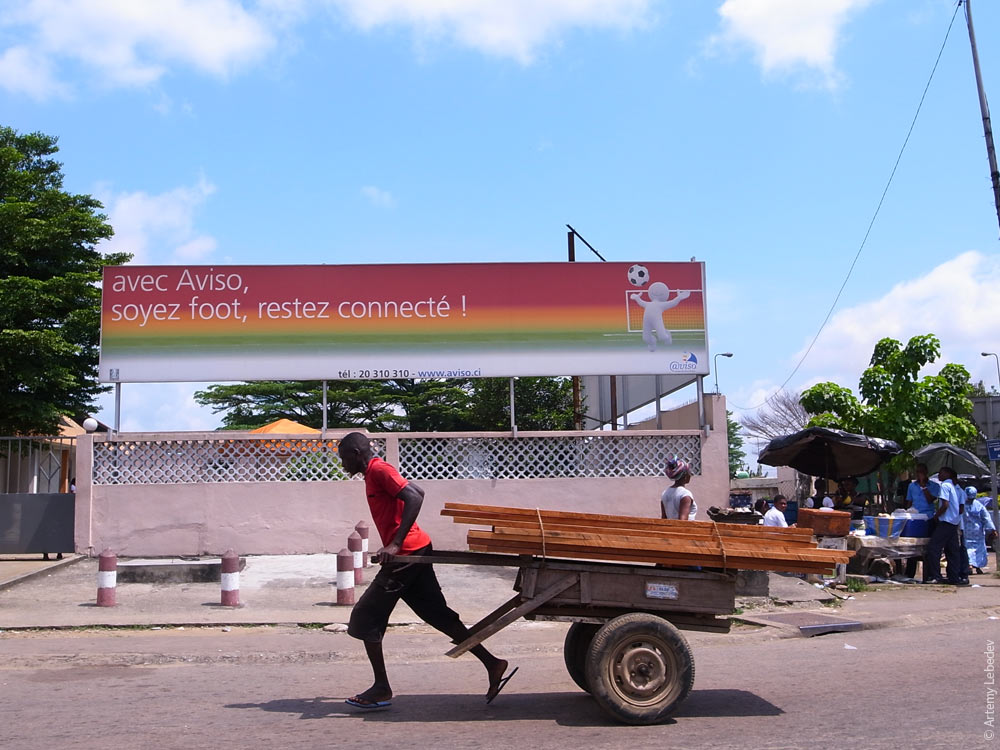 For some reason, all the street market umbrellas are covered with black plastic sheeting. 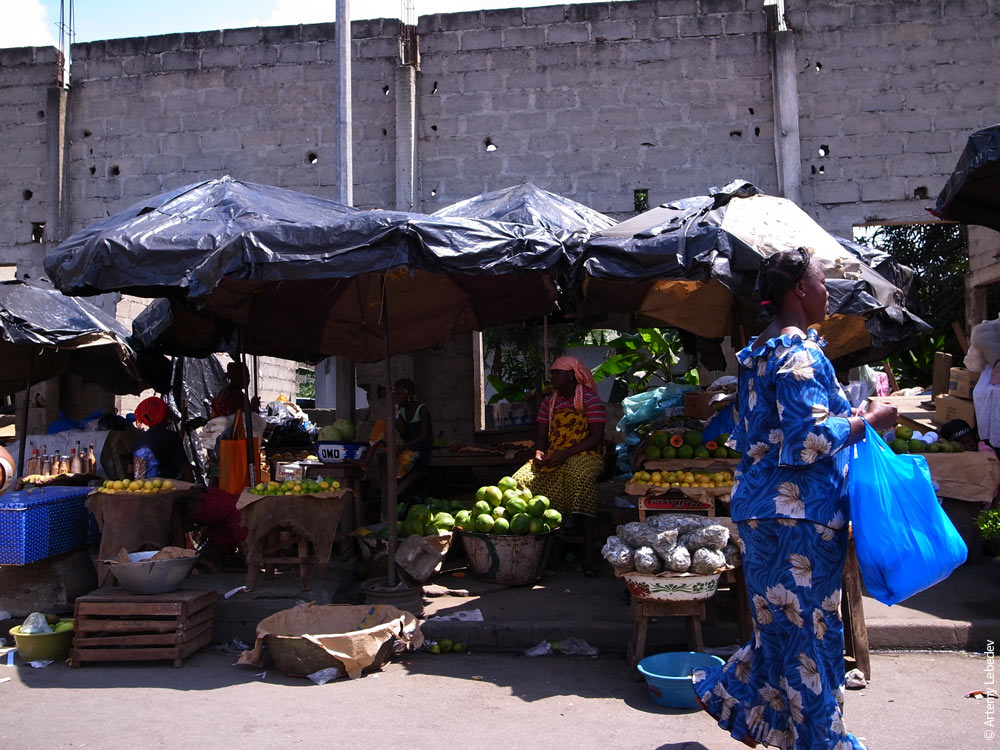 You can feed a hippo popcorn at the Abidjan zoo. 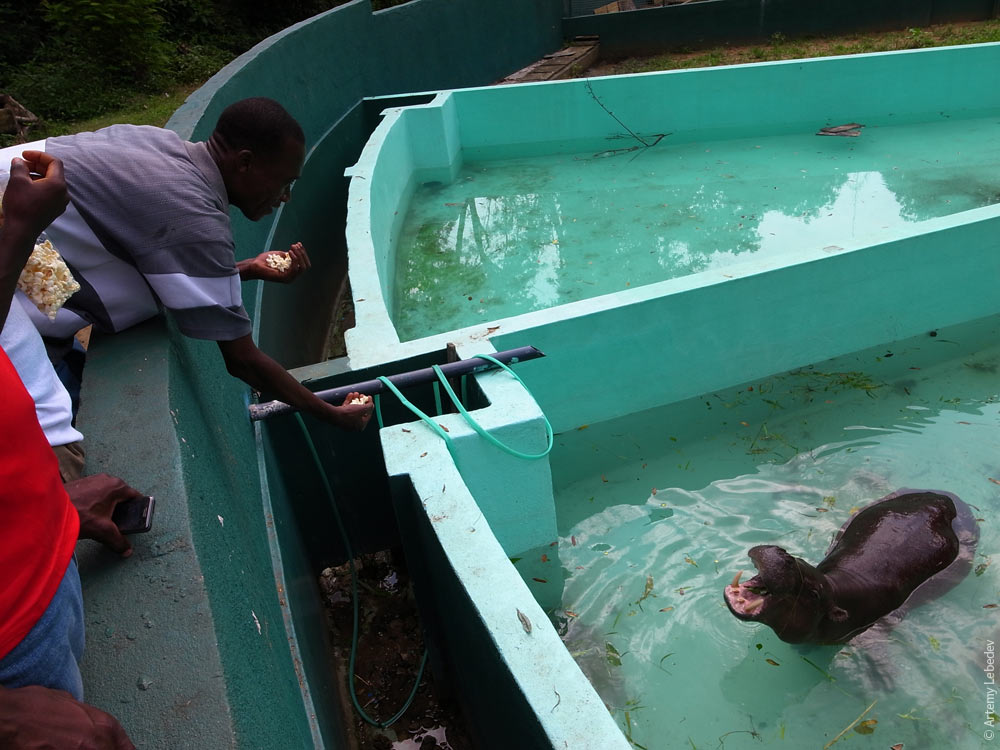 And socialize with your ancestors. 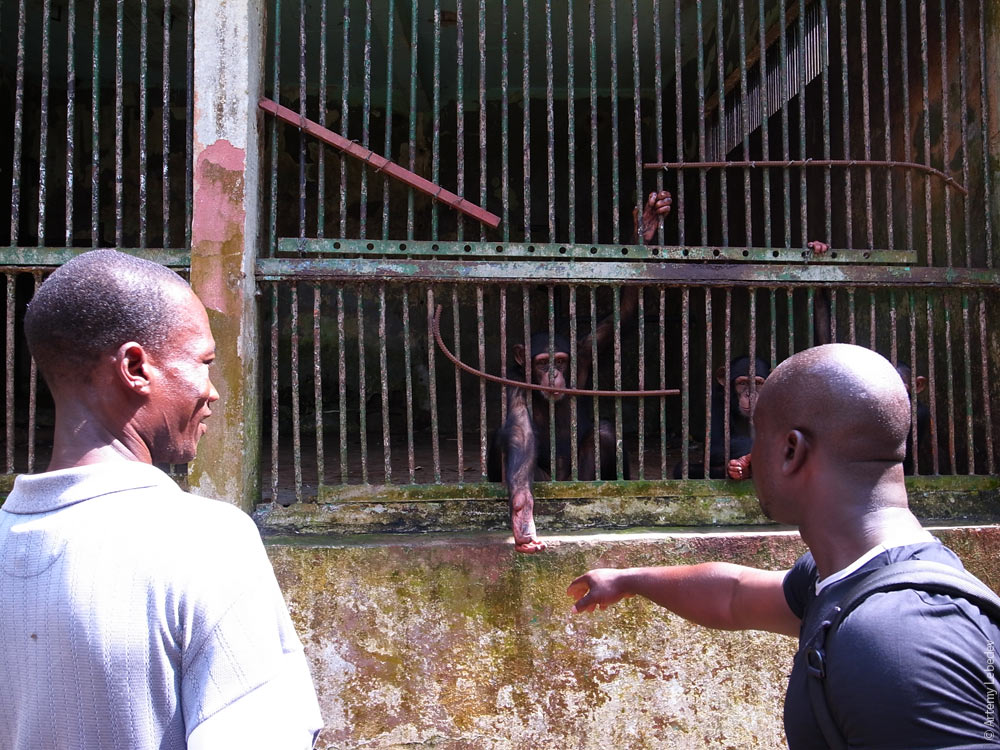 Right outside the city, a more typical Africa begins. 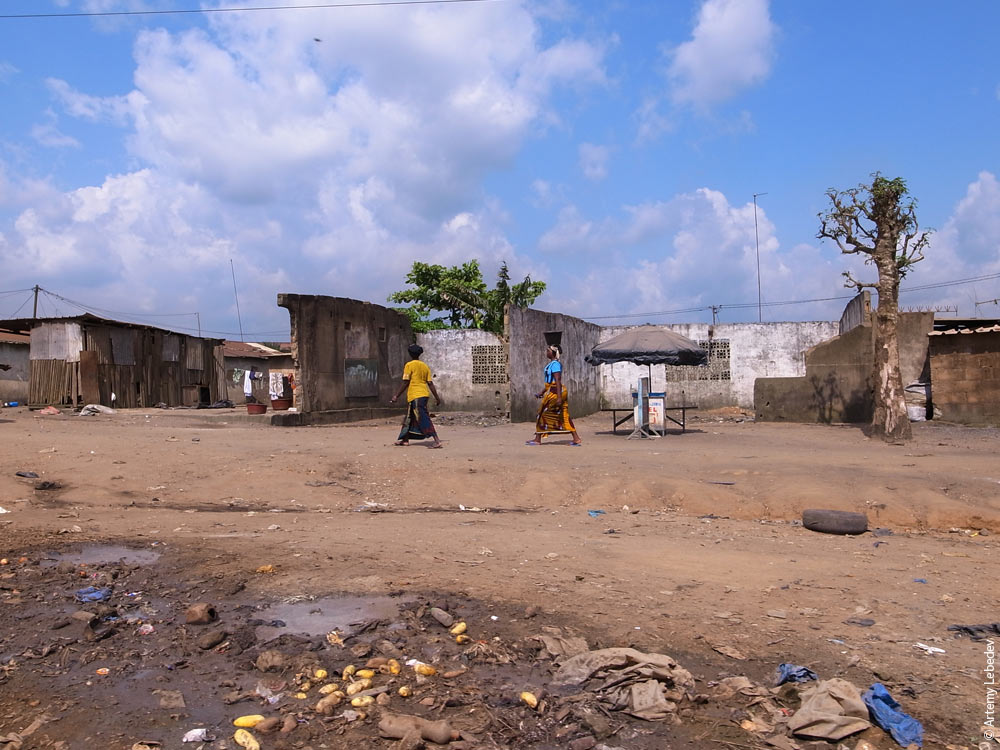 Something French civilization is powerless to change. 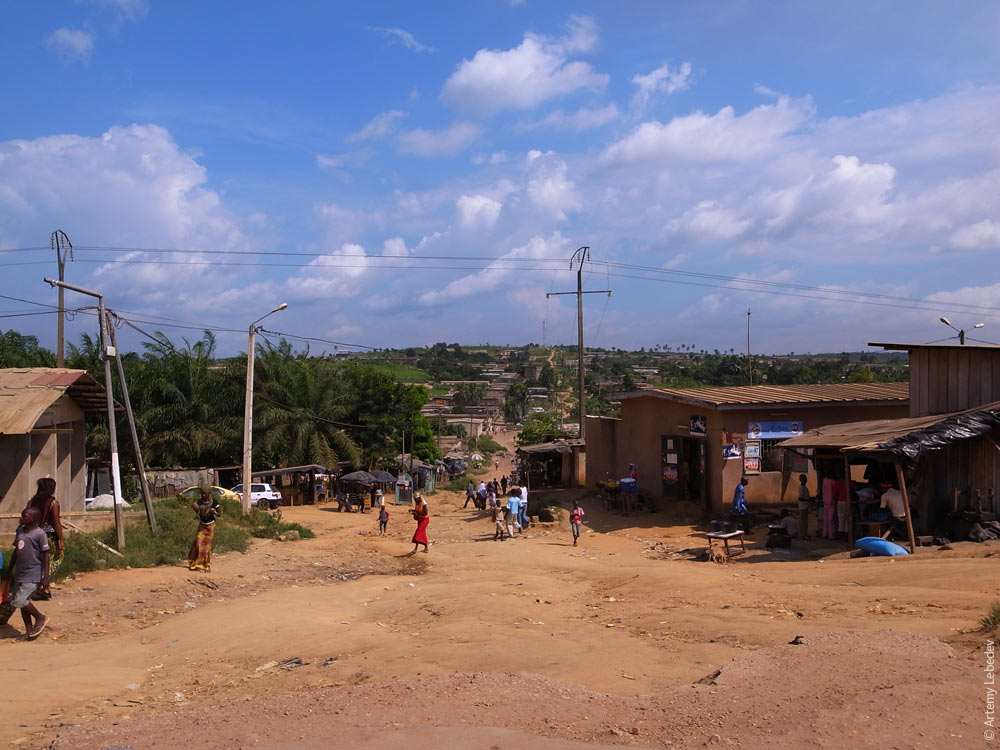 Before leaving, I stopped into the one and only Russian restaurant on the continent. It’s called Restoruss. They serve vodka in carafes that are frozen into blocks of ice, splendid pickles, delicious borsch and homestyle pelmeni. Highly recommended. 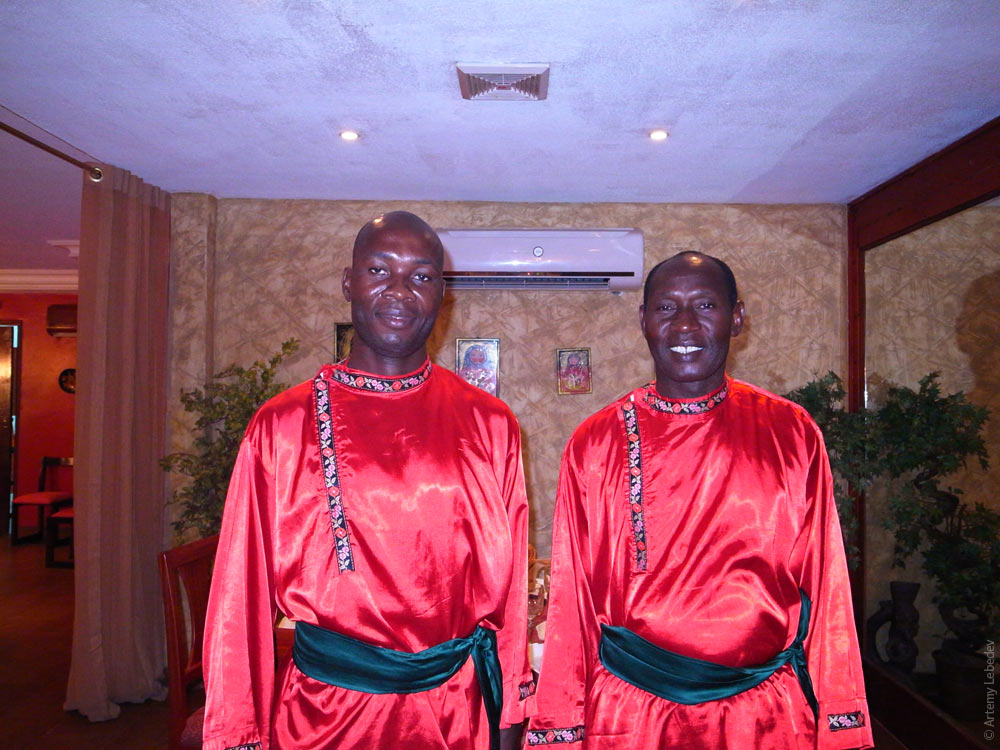 * * * On December 4, 2010 both presidential candidates—the incumbent and the newly-elected one—were sworn in, and the usual African chaos and mayhem broke out in the streets. The embassies of Western countries immediately evacuated their employees. Just in case, fifteen thousand people fled to Liberia, where the chances of dying in a new civil war are smaller. There’s good reason to believe that the reader won’t be able to try the pelmeni in Côte d’Ivoire anytime soon. |